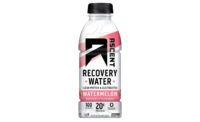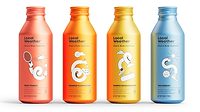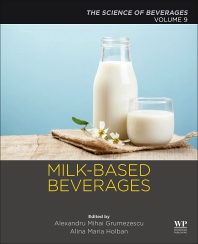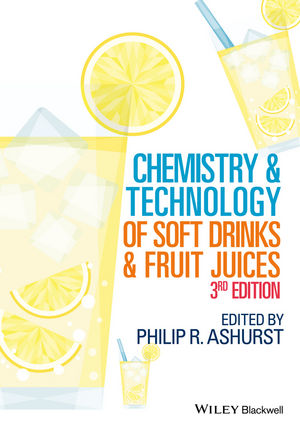Category Focus
Functional, plant-based ingredients boost sports, protein drinks’ growth
Performance beverages broaden functionality with new releases
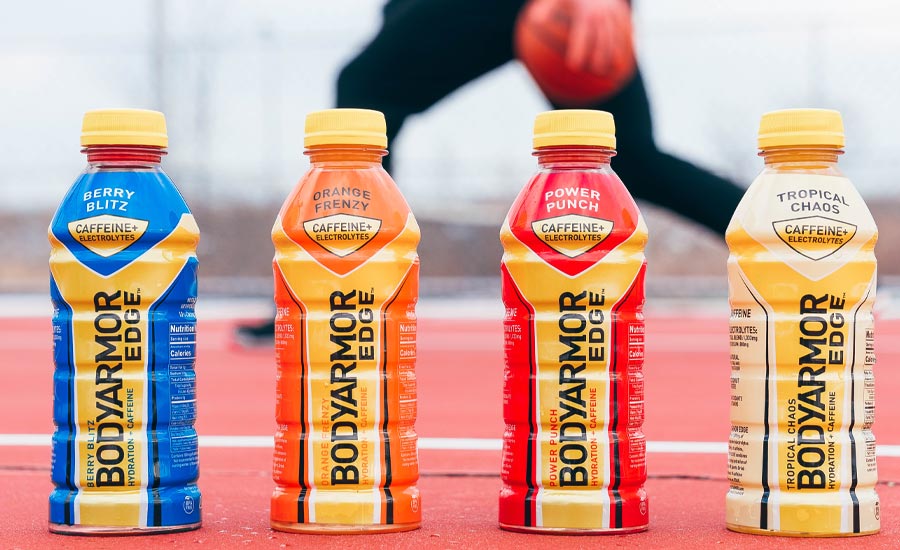
As gyms and other facilities were forced to close due to the pandemic, one might presume that consumers’ fitness routines suffered as well. Surprisingly, that wasn’t the case. The number of consumers who maintained their fitness routines held steady at the beginning of the pandemic, according to Chicago-based Mintel’s March 2020 “Sports and Performance Drinks – US” report. As a result, sports and performance drinks have been able to sustain positive growth.
From 2015 to 2020, sports and performance drink sales increased 18 percent, according to Mintel’s February 2021 “Sports and Performance Drinks – US” report. Most recently, sports drinks led growth, with dollar sales increasing 11.8 percent in the 52 weeks ending Feb. 21, 2021, compared with the prior-year period, in total U.S. grocery, drug, mass market, convenience, military, and select club and dollar retailers, according to Information Resources Inc. (IRI), a Chicago-based market research firm. By comparison, IRI data shows that dollar sales of weight control and nutritional drinks increased 5.8 percent during the same timeframe. Current Mintel projections estimate sales of sports and performance drinks will increase 26 percent by 2025.

(Image courtesy of GoodSport Nutrition)
Although the pandemic presented a challenge for many beverage categories, it seems to have offered a positive opportunity for the sports and performance drinks segment. For instance, 39 percent of adults said that maintaining their exercise has been a higher priority because of COVID-19, Mintel’s January 2021 “Health Management Trends – US” states. Additionally, when the pandemic first began and consumers started stocking up on grocery essentials, many selected sports and performance drinks, Mintel reports. In fact, consumer interest in sports drinks grew by 19 percent in 2020, according to Kishan Vasani, co-founder and CEO of Spoonshot, a Minneapolis-based food and beverage intelligence company. But most importantly, once consumers bought the drinks, they were more likely to consume them rather than stockpile them, Mintel notes.
This created an opportunity for the segment to reach a wider range of consumers, Mintel’s report suggests. But first, it’s vital to learn who these consumers are.

(Image courtesy of Only What You Need Inc.)
According to Mintel’s “Sports and Performance Drinks” report, these consumers consist mainly of “everyday exercisers” and athletes. Specifically, more than 80 percent of adults take steps to remain active, yet only 16 percent consider themselves “athletes.” Therefore, the report suggests that brands “loosen the ties with ‘athletics’” and shift some of the focus to the “everyday exercisers.” They can do so by offering added value through functional benefits, it suggests. This also might help increase routine consumption, as the report shares the majority of consumers drink sports drinks weekly, not daily.
“Most sports drink brands will need to create connections with everyday wellness initiatives to become a more frequent part of the consideration set,” Mintel’s report states. “Even small increases from once to multiple times a week can move the needle.”
Functional claims
By adding function to sports and protein drinks, beverage brands can achieve a broader range of health and wellness benefits, thereby appealing to a diverse range of consumers, Mintel’s report states.
“Consumer interest in functional beverages is on the rise — increasing by 11 percent in 2020 — as they become more health conscious,” Spoonshot’s Vasani says. “Consumers today don’t just want their beverages to taste good and help them stay hydrated; they also want added health benefits. This is true of functional drinks with specific purposes, like sports and protein drinks. Further, consumers don’t just want recovery and hydration from these drinks to enhance overall physical performance; they also want these drinks to improve mental focus.”
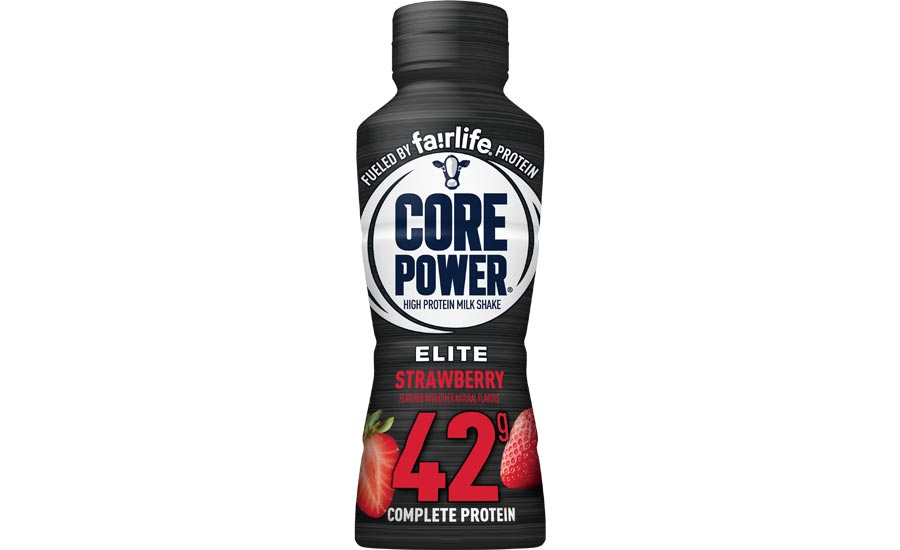
(Image courtesy of The Coca-Cola Co.)
Spoonshot predicts interest in cognitive health to grow by around 12 percent in the coming year.
“Cognitive health is gaining ground among sportspersons and athletes to help with faster decision-making capabilities and focus for enhanced sporting performance,” Vasani explains. “This in turn will help such functionalities become popular among mainstream consumers of sports and protein drinks.”
Another functional option is energy, Vasani adds. He notes that interest in energy support is set to grow by 35 percent in the coming year. BODYARMOR, a brand of BA Sports Nutrition, Whitestone, N.Y., recently exemplified this trend when it launched its BODYARMOR EDGE line of caffeinated sports drinks. The beverages feature 1,000 mg of electrolytes and 100 mg of natural caffeine. New York-based Vita Coco also infused energy into its lineup with the recent release of Vita Coco Boosted. The line of coconut waters is fortified with coconut MCTs and natural caffeine from tea and B vitamins.
Furthermore, because of COVID-19, it’s no surprise that many beverage-makers are using immunity-supporting ingredients to fortify their sports and protein drinks. For instance, Abbott Park, Ill.-based Abbott introduced Pedialyte with Immune Support, featuring prebiotics, vitamin B12, vitamin C, vitamin E and zinc. Similarly, Purchase, N.Y.-based PepsiCo Inc. launched Propel Immune Support, featuring vitamin C and zinc. In the protein drink segment, Abbott released Ensure Plus, a nutritional shake boasting 16 grams of protein (75 percent more than Ensure Original) as well as essential nutrients for immune support.
Spoonshot’s Vasani also expects probiotics and prebiotics to become more common in sports and protein drinks for their ability to aid in digestion. In particular, protein can be harder to digest, so these ingredients are especially likely to make an appearance in protein drinks.
“Expect to see the inclusion of prebiotics like xylo-oligosaccharides and galacto-oligosaccharides to aid digestive health,” he says.
With the benefits of hydration and additional function, beverage-makers hope consumers will build these drinks into their daily wellness routines.
“Adding value beyond hydration will encourage daily consumption behavior and increase the percentage of users that say these products are an essential part of their wellness routine,” Mintel’s report states.
Plant-based protein drinks
Aside from functional fortification, the trend toward plant-based ingredients is having a major influence on the protein drinks segment. In fact, it’s transforming it, according to Roger Dilworth, senior analyst at Beverage Marketing Corporation (BMC), New York.
“The protein drink category is starting to be transformed by the plant-based foods and plant protein craze,” he says. “Brands like OWYN, which are probably being looked at by strategists, have influenced competitors to pay more attention to plant-based protein, as PepsiCo recently announced in relation to its Evolve brand.”
OWYN, a brand of Fairfield, N.J.-based Only What You Need Inc., features non-dairy, allergen-free, plant-based ingredients with 20 grams of protein. Likewise, PepsiCo’s recently acquired Evolve brand features plant-based ingredients with 20 grams of protein and 10 grams of fiber. Its Berry Medley variety also features immune support ingredients.
According to Spoonshot’s Vasani, consumer interest in alternative protein has grown by more than 500 percent in the past five years, and it could increase by as much as 32 percent in the coming year.
BMC’s Dilworth also expects plant-based protein to continue growing in the coming years.
“Plant-based protein drinks should continue to gain share as some consumers move away from whey and other dairy-based protein,” he says.
Future predictions
Although plant-based options are attempting to steal share from dairy-based protein drinks, consumers could begin to see milk crop up in a new category: sports drinks.
“Recent updates to the U.S. government nutrition database indicate that milk is now a good or excellent source of four more micronutrients (in addition to the nutritional powerhouse it already is): potassium, zinc, selenium and iodine,” Spoonshot’s Vasani explains. “Milk was used as a recovery drink in the past but has fallen out of favor with athletes since it isn’t always quick or easy to digest.
“With its high protein, electrolyte and hydration features, there is plenty of scope to see more milk-based sports/protein drinks that can be used pre-, during and post-workout,” he continues. “This is also an excellent opportunity for milk brands to leverage this feature, especially in light of the challenge from plant-based milks for the category.”
A new sports drink featuring milk already has hit the market. In March, Chicago-based startup GoodSport Nutrition launched GoodSport natural sports drinks made from milk in four flavors: Wild Berry, Lemon Lime, Citrus and Fruit Punch. GoodSport delivers 1,680 mg of electrolytes and 33 percent less sugar than traditional sports drinks due to the use of monk fruit extract and corn-based erythritol. Plus, it is lactose free, shelf stable, and a good source of calcium and B vitamins, the company says.
Looking for a reprint of this article?
From high-res PDFs to custom plaques, order your copy today!




